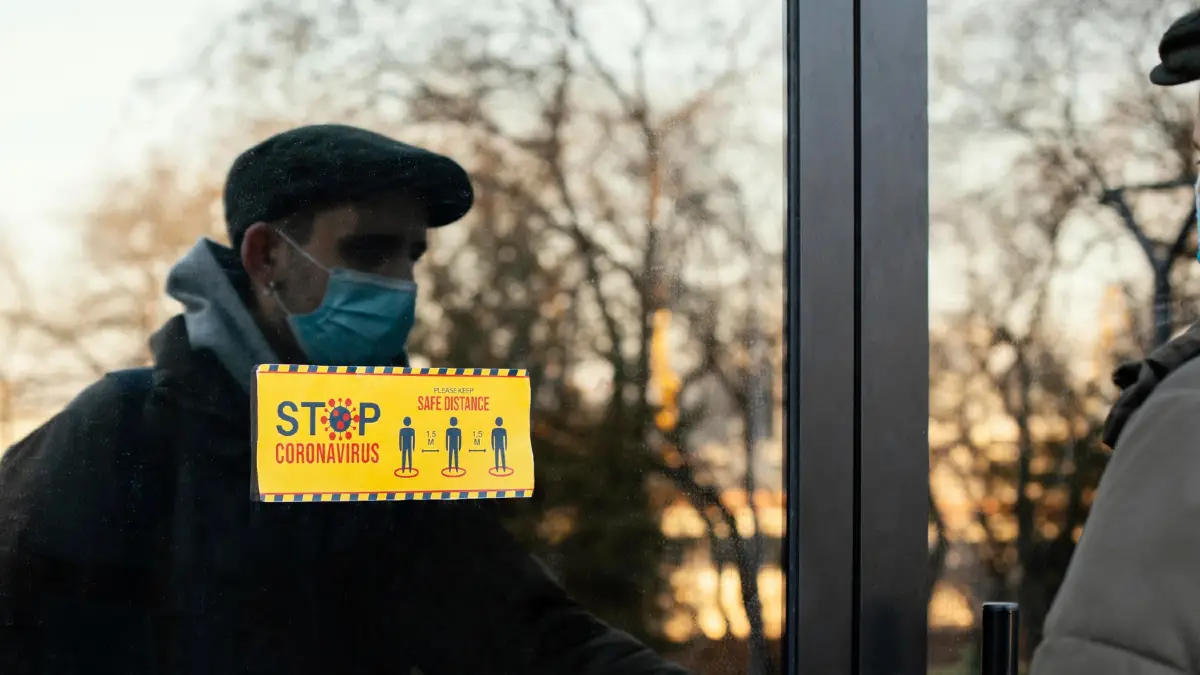Robert Ellis thought he was living the van life dream in St. Petersburg, Florida, until a single parking violation led to a $500 fine and a criminal background check.
He discovered that van life laws are far sneakier than most nomads realize. Cities have passed 320+ new ordinances since the Supreme Court’s Grants Pass decision, while vehicle dwellers increased 37% from 2022-2024.
Most van lifers unknowingly break multiple laws daily—from secret 72-hour parking limits to $10,000 felony wastewater violations. These camper van laws can destroy your finances and freedom if you don’t know they exist.
Here are 11 specific laws with real penalties and compliance strategies to keep your van life dreams legal.
1. Secret 72-Hour Rules Apply Even Without Posted Signs

Most cities have automatic 72-hour parking limits that apply everywhere within city limits, whether signs are posted or not—and enforcement has become aggressive since 2024. You can get a ticket even when you think you’re following the rules.
The Hidden Problem
Here’s what most van lifers don’t know: cities write overnight parking laws into their municipal codes that apply everywhere, not just where signs tell you. You won’t see a sign warning you about the 72-hour limit because the city assumes you know the law.
Seattle Municipal Code 11.72.440 makes this crystal clear. The entire city has a 72-hour parking limit. No exceptions. No signs required. Park for 73 hours anywhere in Seattle, and you’re breaking the law.
Berkeley shows how tricky this gets. The city repealed its vehicle dwelling ban in 2020 after public pressure. Sounds good for van life parking, right? Wrong. Berkeley still enforces strict parking time limits that make it nearly impossible to stay legally. They removed one law but kept another that does the same thing.
Flagstaff takes enforcement to a weird new level. Residents can write parking tickets to each other. Your neighbor becomes the parking police. This creates unpredictable enforcement where anyone can decide you’ve been parked too long.
St. Petersburg cranked up enforcement in 2024. The city now has 4-hour residential parking limits Monday through Thursday. That’s not 72 hours. That’s 4 hours. Park overnight Monday night, and you’re illegal by Tuesday afternoon.
The pattern is clear: cities are making parking harder for van lifers, not easier.
Real Penalties & Cases
Don’t let the small dollar amounts fool you. Denver updated its fines to $25-$150 for first-time parking violations in 2022. But that’s just the base fine.
Court costs multiply everything by 3 to 5 times. A $25 ticket becomes a $125 bill after processing fees, administrative costs, and court surcharges. Miss your court date? Add another $50 to $100.
St. Petersburg charges $35 for 4-hour violations in residential areas. Park overnight and you’re looking at an $85 bill after fees. Do it twice in a month and you risk getting towed.
Seattle Municipal Code 11.72.440 and LA Municipal Code 80.73.2 show how cities write these rules. The language is usually buried in traffic regulations, not housing codes. That’s why van lifers miss them when researching parking laws.
Compliance Strategy
Compliance Tip: Move every 48 hours, even if no signs are visible. This gives you a safety buffer below most 72-hour limits and shows you’re not using streets for long-term housing.
Use parking apps like AllStays and FreeRoam to track your time limits. Set phone reminders for 44 hours after you park. Take a quick drive around the block to reset the clock.
Research municipal codes before entering new cities. Google “[City name] parking ordinance” or “[City name] municipal code parking.” Look for time limits, not just overnight bans.
Take GPS screenshots showing your movement between spots. If you get a ticket, this proves you followed the law. Date stamps on photos help too.
But even if you master parking time limits, your vehicle registration might be creating an entirely different legal problem…
2. Mail Forwarding Without True Domicile Creates Registration Violations

Using a mail forwarding service without establishing genuine domicile is technically registration fraud, and states like California and New York are aggressively pursuing van lifers with automated enforcement systems. Your mailbox address could trigger a costly audit.
The Domicile Problem
“Domicile shopping” means picking a state just for the benefits without actually living there. You use a mail service in South Dakota for no-income-tax advantages while spending most of your time in California. That’s fraud in the eyes of both states.
High-risk states like California, New York, Massachusetts, New Jersey, and Connecticut use license plate readers and database cross-referencing to catch this. They track where your car actually spends time versus where you claim to live for van life domicile purposes.
Popular nomad states require proof beyond mail service. Nevada’s DMV demands a 1-month RV park receipt or hotel stay to prove you actually visited the state. You can’t just sign up for mail forwarding and call it legal residency.
South Dakota makes it easier. The state accepts a 1-night hotel receipt plus address establishment. But you still need to show up in person, stay overnight, and complete the paperwork. Mail forwarding alone won’t cut it.
State residency laws create a trap for van lifers. Your old state might claim you never really left (you kept a bank account there). Your new state might say you never really arrived (you only used a mail service). Both states can demand taxes.
Working in multiple states makes this worse. Earn money in California for a few months and the state can claim you owe taxes there, regardless of your domicile address.
Real Penalties & Cases
Penalty ranges hit $100-500 for first offenses, but that’s before the real pain starts. Insurance fraud charges can follow if you used the wrong address on your policy. Back taxes plus interest can cost thousands.
A North Carolina Sprinter owner faced this nightmare with USAA insurance. His policy lapsed when he changed states incorrectly. North Carolina fined him for driving uninsured. USAA refused to cover him because his address didn’t match his actual location. He paid out of pocket for everything.
Automated enforcement makes this worse. License plate reader networks track out-of-state vehicles. Stay in California for 6 months with South Dakota plates, and computers flag your car for investigation.
Tax implications multiply the cost. If a state wins a residency claim, you owe back taxes plus 20% annual interest. A $2,000 tax bill becomes $6,000 after three years of penalties.
Compliance Strategy
Compliance Tip: Establish multiple ties to your chosen domicile state: voter registration, bank accounts, vehicle registration, and documented nights spent. One tie isn’t enough. You need a web of connections that prove genuine residency.
Use legitimate domicile services like Texas Escapees or South Dakota services that understand legal requirements. They help you meet state rules properly, not just get a mailing address.
Document your exit from previous state. Change addresses with banks, close old accounts, update voter registration. Create a paper trail showing you actually left.
Keep detailed travel logs showing time spent in domicile state. GPS data, hotel receipts, and campground records prove you actually visit your claimed home state.
Registration problems are serious, but they pale in comparison to the felony charges you could face for something as simple as dumping your dishwater.
3. Dumping Gray Water on the Ground Is a Felony in Some States

Dumping gray water from your van can result in felony charges and fines up to $10,000, as environmental enforcement has intensified dramatically following major contamination cases in 2024. Your dishwater could land you in jail.
The Federal and State Landscape
RV wastewater laws get serious fast. The Clean Water Act Section 312(j) allows federal fines up to $2,000 for vessel discharge violations. That includes your van’s sink water hitting the ground near rivers, lakes, or wetlands.
Texas takes it further. Dumping in waters carries state jail felony charges—up to $10,000 fine plus 2 years in prison. Your gray water doesn’t need to hit a major river. Storm drains count as waterways under Texas law.
Imperial County, California shows how penalties escalate. First offense gets you $250-500. Second offense jumps to $500-1,000 plus 6 months jail time. They don’t mess around with repeat offenders.
Montgomery County set a scary precedent in 2024. A violator got stuck with $69,000 in cleanup costs for dumping grease that contaminated local waterways. The county can bill you for environmental damage, not just fine you for breaking the rule.
Los Angeles County hits gray water dumping illegal violations with up to $1,000 fines. Park rangers actively patrol popular van life spots looking for evidence of dumping. Wet spots under your van can trigger an investigation.
The enforcement pattern is clear: states are treating van life wastewater like industrial pollution. What seems harmless to you looks like environmental crime to prosecutors.
Storm drains make this tricky. Many lead directly to rivers or oceans. Dump your sink water into what looks like a regular drain, and you might be violating federal clean water laws.
Real Penalties & Cases
CEMEX got hit with massive fines in 2025 for dumping 13 million gallons per day into the Truckee River. Van lifers aren’t dumping that much, but the case shows how seriously courts treat water contamination now.
Typical penalty ranges hit $250-1,000 for van life violations, but cleanup liability can multiply costs by 50 times or more. You’re not just paying a fine. You might pay to fix the damage you caused.
Environmental violations appear on federal background checks. This isn’t a traffic ticket that disappears. Future employers, landlords, and loan officers will see your environmental crime conviction.
Storm drain confusion catches many van lifers. They think they’re dumping on the ground, but they’re actually dumping into protected waterways. Intent doesn’t matter. Results do.
Compliance Strategy
Compliance Tip: Only dump at designated RV dump stations, never in storm drains, on the ground, or in natural water sources. When in doubt, hold it until you find a legal facility.
Use apps like Sanidumps and RV Dump Stations to locate legal facilities before you need them. Plan your route around dump stations, not the other way around.
Carry extra gray water storage for areas without dump stations. A second tank or collapsible containers buy you time to find legal dumping.
Know the difference between gray water (sinks and showers) and black water (toilets). Both need proper disposal, but black water violations carry harsher penalties.
Environmental violations are heavily penalized, but weight violations can be just as costly and are much easier to accidentally commit…
4. Your Loaded Van Might Be Illegally Overweight Without You Knowing

Weight limit violations are the ‘invisible crime’ of van life—automatic enforcement systems can now ticket you for being overweight without ever stopping your vehicle, and fines start at $175 for just 1,000 pounds over the limit.
Weight Enforcement Landscape
Van weight limits create a trap most people never see coming. The federal baseline allows 80,000 pounds gross vehicle weight without permits. Your van weighs way less than that, so you think you’re safe. Wrong.
California sets the misdemeanor threshold at 4,501 pounds gross vehicle weight without proper classification. Load up your Sprinter with water, food, gear, and passengers, and you might cross into commercial vehicle territory. That requires different licensing and insurance.
New automated enforcement makes this worse. NYC’s Brooklyn-Queens weigh-in-motion cameras started issuing $650 fines in June 2025. Drive over the sensor too heavy, and you get a ticket in the mail weeks later.
Connecticut uses graduated fines that hurt fast. 10% overweight costs $150. 20% overweight jumps to $300. The penalties scale up as your violation gets worse.
GVWR violations can mess up more than your wallet. DOT violations appear on your driving record. Future employers who require clean driving records will see these violations. Commercial drivers can lose their CDL over weight violations.
The invisible problem is that your van changes weight constantly. Empty van plus full water tanks plus camping gear plus groceries plus two passengers might put you over legal limits. You won’t know until you get weighed.
Scale enforcement is expanding fast. More states are installing weigh-in-motion systems on highways. These cameras weigh your vehicle while you drive normal speed. No stopping required.
Real Penalties & Cases
California’s baseline penalty looks small but grows huge. The $20 base fine becomes $175 actual cost after court fees for being 1,000 pounds over limit. Miss your court date or fight the ticket, and costs multiply again.
Escalation gets expensive fast. That $175 fine becomes $753 with full court costs and processing fees. Add traffic school or legal representation, and you’re looking at over $1,000 for a weight violation.
Automated expansion is happening nationwide. Weigh-in-motion systems are spreading to major highways in Texas, Florida, and other popular van life states. The technology catches violations 24/7 without human officers.
Commercial reclassification creates bigger problems. Overweight personal vehicles can be reclassified as commercial, requiring CDL licenses, commercial insurance, and DOT compliance. Your vacation becomes a business compliance nightmare.
Compliance Strategy
Compliance Tip: Weigh your van fully loaded at truck stops or certified scales, know your GVWR (Gross Vehicle Weight Rating) from the door sticker, and keep weight documentation in your vehicle to prove compliance.
Use the CAT Scale app to find certified truck stops near you. Most charge $10-15 for a weigh. That’s cheap insurance against $650 tickets.
Account for everything in your weight calculations. Water weighs 8 pounds per gallon. Food, gear, and passengers add up fast. Your “empty” van might be closer to limits than you think.
Consider weight distribution, not just total weight. Overloading your rear axle can violate weight limits even if your total weight is legal. Balance your load front to back.
Weight violations happen in cities, but the most expensive mistakes occur on federal lands where violations follow you forever.
5. The 14-Day BLM Rule Has a 25-Mile Gotcha That Catches Everyone

Federal land violations appear on background checks unlike local tickets, and the BLM’s 25-mile movement requirement catches even experienced boondockers who think they’re following the rules. This isn’t just a camping ticket—it’s a federal crime.
Federal Land Complexity
BLM camping rules hide a trap that gets almost everyone. BLM regulation 43 CFR 8365 requires you to move 25+ miles after 14 days, not just move to a different spot. Drive two miles down the road to a “new” campsite, and you’re still breaking federal law.
LTVA fees jumped to $420 for 7-month permits in the 2025 season. That’s up from $300 just two years ago. The government is pricing out budget campers while making the rules harder to follow for free camping.
Colorado added a nasty new twist in 2024. The state now requires you to leave the area for 30 days after your maximum stay. You can’t just move 25 miles and come back. You have to leave Colorado BLM land completely for a month.
Federal citation implications make this serious. Municipal parking tickets stay local. Federal violations follow you everywhere. Background checks for jobs, housing, and loans will show these violations. You’re not just paying a fine—you’re getting a federal record.
Fire restriction liability can destroy your finances. Violate fire restrictions during fire season, and you become responsible for wildfire suppression costs. We’re talking tens of thousands of dollars if your illegal campfire sparks a wildfire.
Federal land camping laws are enforced differently than city rules. Rangers have broad authority to search your vehicle, check your camping setup, and demand proof of compliance. They’re federal law enforcement, not local parking meter cops.
The 25-mile rule creates problems in popular areas. Move 25 miles from Quartzsite, and you might end up in a different ecosystem with different rules. What works in one area might be illegal 25 miles away.
Real Penalties & Cases
Standard penalties hit $75-150 for first offenses plus mandatory ejection from the area. But that’s just the start. Rangers ban you from returning to that specific area, sometimes for months.
Repeat offenses escalate to federal court appearances. Miss too many court dates or rack up multiple violations, and you’re looking at criminal charges instead of simple fines.
Fire violation costs can reach $50,000+ for campfire violations during fire restrictions. Cal Fire billed campers $60,000 for a small wildfire in 2024. Your $20 campfire becomes a life-changing debt.
GPS tracking enforcement is getting sophisticated. Rangers use technology to verify that you actually moved 25+ miles. Lying about your movement creates additional charges for providing false information to federal officers.
Compliance Strategy
Compliance Tip: Use GPS tracking apps to document exact locations and verify 25+ mile movements between 14-day stays, and understand that “area” typically means a 25-mile radius from your original campsite.
Download offline maps showing BLM boundaries before you lose cell service. Know exactly where legal camping areas start and end. Cross into National Forest or private land by accident, and you face different rules and penalties.
Track dates carefully with photos and GPS coordinates. Take a picture of your GPS reading when you arrive and when you leave. Date stamps prove compliance better than memory.
Research LTVA options for extended winter stays. Pay the $420 fee if you plan to stay in popular areas longer than 14 days. It’s cheaper than moving every two weeks.
Federal violations are serious, but noise violations can get you kicked out of any campground immediately.
6. 60-Decibel Rules Are Stricter Than You Think and Rigorously Enforced

Generator noise limits of 60 decibels at 50 feet are strictly enforced in campgrounds and can result in immediate eviction plus fines up to $500, even for first-time violations. Your generator might sound quiet to you but illegal to rangers.
Noise Regulation Landscape
Generator noise laws in National Parks set the standard at less than 60 decibels at 50 feet during 10pm-6am quiet hours. That’s quieter than normal conversation. Most cheap generators fail this test badly.
New York State restricts generator use to just 5 hours per day—9am-11am and 4pm-7pm in state facilities. Run your generator at 8am or 8pm, and you’re breaking state law. Other campers will report you fast.
Most campgrounds have zero-tolerance policies that enable instant eviction. No warnings. No second chances. Violate noise rules once, and you lose your campsite fees plus get banned from returning.
Municipal variations make this tricky. Virginia noise ordinances allow $250-500 penalties for violations. NYC’s noise code escalates to $800-2,625 for muffler violations in the five boroughs. Your generator counts as a muffler violation.
Sound carries differently based on terrain and weather. Your generator might measure 60 decibels at 50 feet on calm days but sound much louder when wind carries noise or canyons amplify sound. Rangers measure at the worst conditions, not the best.
Quiet hours camping rules vary by location. Some places restrict generators to 8am-6pm. Others allow 6am-10pm. Many ban generators completely during holidays and peak seasons.
The enforcement problem is that rangers have decibel meters and use them. They don’t guess about noise levels. They measure them scientifically and write tickets based on hard numbers.
Real Penalties & Cases
Campground eviction costs you more than money. You lose your campsite fees plus potential bans from entire park systems. Get kicked out of a National Park for noise violations, and other parks will know about it.
Virginia fines hit the $250-500 range with court costs multiplying your actual expense. A $250 noise fine becomes a $600 bill after processing fees and administrative costs.
Gorge Amphitheatre enforces strict 2am-8am quiet time with security patrols using sound meters. Even legal generators get complaints during quiet hours. Security doesn’t care if you’re technically following rules.
Neighbor complaints create problems even during legal hours. Other campers will complain to rangers about generator noise. Too many complaints can get you evicted even if you’re following posted rules.
Compliance Strategy
Compliance Tip: Use smartphone decibel meter apps to test your generator at 50 feet, invest in ultra-quiet inverter generators (Honda EU2200i, Yamaha EF2000iSv2), and follow the “good neighbor” rule of operating only during posted hours.
Consider generator alternatives like solar panels and portable power stations. Battery technology is getting better and cheaper. Many van lifers are ditching generators completely.
Use sound dampening techniques and proper positioning. Point your generator away from other campers. Use barriers like your van to block sound. Every bit helps when rangers start measuring.
Respect posted quiet hours religiously. Even if your generator meets noise limits, running it during quiet hours annoys everyone around you. Happy campers don’t complain to rangers.
Noise violations happen in campgrounds, but parking in residential areas violates completely different laws that most van lifers don’t even know exist…
7. Living in Residential Areas Violates Zoning Laws Even If You’re Not ‘Camping’

Parking in residential neighborhoods can violate zoning ordinances completely separate from parking time limits, and municipalities have passed 320+ new ordinances since the Supreme Court’s Grants Pass decision. You can follow parking rules perfectly and still break zoning laws.
Zoning vs. Parking Law Confusion
Residential parking laws create a double trap that catches van lifers off guard. Los Angeles Municipal Code 85.02 bans vehicle dwelling within 1 block of schools, parks, or daycare centers. You’re not just dealing with time limits—you’re dealing with location bans.
Costa Mesa requires window coverings to allow full interior view by law enforcement. Cover your windows for privacy, and you’re breaking a municipal code. Leave them uncovered, and everyone sees you’re living in your van.
You can violate both parking time limits AND zoning dwelling restrictions at the same time. Park legally for 2 hours but get caught sleeping in a residential zone, and you face two different tickets with two different penalties.
The Supreme Court’s Grants Pass decision gave cities broader authority to restrict vehicle dwelling. Since that ruling, zoning violations van life enforcement has exploded. Cities are writing new rules specifically to target van lifers.
Definition variations make compliance tricky. “Dwelling” vs. “camping” vs. “habitation” have different legal meanings in different cities. What counts as illegal dwelling in one city might be legal parking in another.
School zone complications overlap with desirable parking areas. Many cities have 1,000-foot rules around schools. That often includes the quiet residential streets where van lifers want to park. You’re illegal even if you never see the school.
Stealth camping doesn’t fix the legal problem. Just because rangers or police don’t catch you doesn’t mean you’re following the law. Getting away with it isn’t the same as being legal.
Real Penalties & Cases
Municipality penalties range from $25-500 depending on location, plus towing costs that add another $200-400. A $50 zoning violation becomes a $450 problem when they tow your home.
St. Petersburg actively patrols 4-hour Monday-Thursday residential limits. Rangers know the popular van life spots and check them regularly. They’re not just enforcing randomly—they’re targeting specific areas.
Virginia escalates penalties to $250 for first offenses and $500 for subsequent violations. Get caught twice in Virginia residential areas, and you’re looking at $750 in fines plus court costs.
Vehicle impoundment can cost $1,000+ to resolve. Towing fees, storage fees, and administrative costs pile up fast when your home gets impounded. Some people abandon their vans because recovery costs more than the van is worth.
Compliance Strategy
Compliance Tip: Research both parking time limits AND zoning dwelling restrictions before stopping in residential areas, and understand that stealth camping doesn’t make dwelling legal even if you’re not detected.
Use commercial and industrial areas when possible. Business districts usually have fewer dwelling restrictions than residential zones. Walmart parking lots exist in commercial zones for a reason.
Avoid school zones, parks, and daycare proximity completely. Even if the specific street allows parking, nearby schools can trigger dwelling bans. Drive a few extra blocks to stay clear.
Check municipal codes, not just posted signs. Signs show parking rules but rarely mention zoning restrictions. Google “[City name] vehicle dwelling ordinance” before you park.
Zoning violations are municipality-specific, but insurance coverage gaps create statewide legal problems that follow you everywhere…
8. Standard Auto Insurance Won’t Cover Your Conversion And It’s Legally Required

Van life insurance gaps can void your coverage entirely, leaving you liable for hundreds of thousands in damages while also violating state requirements for proper vehicle coverage classification. Your regular car insurance probably doesn’t cover your van life setup.
Insurance Classification Problems
Retitling challenges create the biggest problem. You need to reclassify your van as an RV for proper coverage, but that’s often impossible if your van is financed. Banks won’t let you change the title classification while they hold the loan.
Address accuracy requirements can void your coverage during claims. Using mail forwarding addresses instead of your actual location gives insurance companies an excuse to deny claims. They’ll argue you provided false information to get cheaper rates.
Progressive pricing reality hits van lifers hard. Converted van policies range $200-400 per month for full-time dwelling coverage. That’s 3-4 times more than regular auto insurance. Budget for it or risk being uninsured.
Standard auto policies exclude “living in vehicle” from coverage. Cause an accident while your van is set up for sleeping, and your insurance company can deny the claim. The kitchen setup proves you’re dwelling, not just driving.
State requirement variations make this worse. Some states require RV insurance for vehicles with sleeping or cooking facilities. Drive through with the wrong insurance, and you’re violating state insurance laws.
RVIA compliance gives you an advantage. Professionally built conversions are easier to insure and retitle. DIY conversions face more scrutiny and higher rates from insurance companies.
Van life insurance companies understand the mobile lifestyle better than regular insurers. They write policies designed for full-time van dwellers instead of weekend campers.
Real Penalties & Cases
Insurance fraud implications can result in criminal charges. Using incorrect address information isn’t just a billing problem—it’s potentially insurance fraud. States prosecute this aggressively.
A North Carolina USAA case shows what goes wrong. Coverage lapse resulted in state fines for driving uninsured plus massive liability exposure. The van lifer ended up paying out of pocket for everything.
Liability exposure can hit $100,000+ without proper coverage. Cause a serious accident without van life insurance, and you’re personally responsible for damages. Your van conversion equipment makes accidents more expensive.
State filing requirements add another layer. Many states require proof of RV insurance for full-time dwelling. Regular auto insurance doesn’t satisfy these requirements.
Compliance Strategy
Compliance Tip: Use specialized van life insurance companies like Roamly or National General that understand mobile living, and maintain consistent addresses across all documents to avoid coverage voids.
Annual policies range $1,000-$3,500 for full-timer coverage. That’s expensive but cheaper than paying damages out of pocket. Factor insurance costs into your van life budget from the start.
Research state-specific requirements before traveling. Some states have unique insurance requirements for converted vehicles. Know the rules before you cross state lines.
Document professional conversion work for easier classification. RVIA-certified builds get better insurance rates and easier retitling. Keep receipts and photos of professional installation work.
Insurance problems affect your coverage, but tax residency violations can trigger audits that cost far more than any traffic ticket.
9. States Can Claim You As Resident While You Claim Different State Residency

High-tax states like California and New York are aggressively pursuing van lifers using license plate readers and database cross-referencing to establish residency claims that can result in massive back-tax bills. Your van life freedom could trigger a tax audit nightmare.
Multi-State Tax Trap
Nexus establishment means states use multiple data points to claim you as a resident. Driver’s license, bank accounts, voter registration, and time spent in the state all count as evidence. You don’t get to choose which state claims you—they choose you.
High-risk pursuit states like California, New York, Massachusetts, New Jersey, and Connecticut employ sophisticated tracking systems. They cross-reference license plate reader data with employment records, bank transactions, and cell phone location data to build residency cases.
Working complications create tax obligations beyond residency. Earn income in multiple states while van lifing, and each state can demand taxes. Work remotely for a California company while claiming South Dakota residency, and both states might want their cut.
Documentation requirements go far beyond mailing addresses. States demand proof of genuine domicile establishment. A mail forwarding service doesn’t prove you live somewhere. You need voter registration, local bank accounts, and evidence you actually spend time there.
Database cross-referencing between states shares information about license plates, addresses, and financial activity. States cooperate to catch tax avoiders. Your South Dakota license plate spending six months in California triggers automatic flags.
Audit triggers include maintaining old state ties while claiming new residency. Keep your California bank account open while claiming Florida residency, and California can argue you never really left.
No-income-tax havens like Texas, Florida, South Dakota, Washington, and Nevada are most popular for nomad taxes strategies. But popularity makes these states targets for other states’ enforcement efforts.
Van life taxes create unique problems because your “home” moves constantly. Traditional residency rules assume people stay in one place most of the year.
Real Penalties & Cases
Back tax exposure can hit years of taxes plus 20%+ annual interest. States can claim up to four years of back taxes if they prove residency. A $10,000 annual tax bill becomes $50,000 with interest and penalties.
Penalty multiplication happens monthly. Late filing penalties, underpayment penalties, and interest compound every month you don’t resolve the dispute. Time makes these problems exponentially worse.
Audit costs for professional representation average $5,000-15,000 for residency disputes. Tax attorneys charge $300-500 per hour, and these cases take months to resolve. The legal fees can cost more than the taxes.
License plate readers create timestamped location evidence that’s hard to dispute in audits. Electronic tolls, parking meters, and traffic cameras create a digital trail showing exactly where you spent time.
Compliance Strategy
Compliance Tip: Establish and maintain multiple genuine ties to your chosen domicile state—voter registration, bank accounts, vehicle registration, healthcare providers—and document your exit from previous states with formal address changes and account closures.
Keep detailed travel logs showing time spent in your domicile state. GPS data, campground receipts, and photos with location stamps prove you actually visit your claimed home state regularly.
Use legitimate domicile services for complex situations. Texas Escapees and South Dakota services understand legal requirements better than generic mail forwarding companies.
Research “statutory residency” thresholds for each state. Most states use 183+ days as the cutoff for claiming residency. Track your time carefully to stay under limits in high-tax states.
Tax problems develop over time, but water safety violations can make you sick immediately…
10. Using the Wrong Water Sources Violates Health Codes You Didn’t Know Existed

Health code violations for non-potable water usage can result in fines plus personal liability if contaminated water causes illness in others sharing your campsite. Your water source could poison you and get you sued.
Water Source Regulations
Dump station water is always non-potable because it comes from wastewater treatment systems. RV dump stations recycle gray water and black water. Using that spigot to fill your fresh water tank is like drinking from a sewer.
Garden hoses leach chemicals and bacteria because they’re not rated for drinking water. The plastic contains lead, phthalates, and other toxins that dissolve into water. What’s safe for watering plants can poison humans.
Health departments inspect RV parks and cite them for allowing non-potable water in drinking systems. Parks face fines and closure threats for letting campers use the wrong water sources. They’ll kick you out to protect their licenses.
Color coding requirements help you stay safe. Blue spigots indicate potable water that’s safe to drink. Brown or red spigots are non-potable and meant for cleaning only. Learn the colors or risk getting sick.
Los Angeles County requires “safe drinking water supply” for temporary housing. Use contaminated water sources, and you’re violating county health codes. They can fine you and evict you from the area.
Portland city code requires RV plumbing to connect only to potable water systems. Hook up to the wrong source, and you’re breaking municipal potable water laws. The city can cite you for health code violations.
RV water safety regulations exist because contaminated water spreads disease fast in campgrounds. One person using bad water can make dozens of people sick through shared facilities and close contact.
Real Penalties & Cases
Health code fines start at $100-500 for first violations and escalate fast with repeat offenses. Get caught twice using non-potable water, and you’re looking at $1,000+ in fines.
Liability exposure makes you personally responsible if contaminated water causes illness in others. Make someone sick with bad water at a campground, and they can sue you for medical costs and damages.
Campground eviction happens immediately when you use wrong water sources. Parks don’t give warnings for health violations. Use dump station water once, and you’re banned from the campground permanently.
Contamination examples include E. coli, heavy metals, and chemical leaching from improper sources. These contaminants cause serious illness that requires medical treatment. Hospital bills add up fast when you poison yourself.
Compliance Strategy
Compliance Tip: Only use designated potable water sources (blue spigots), invest in food-grade water hoses rated for drinking water, and test your water regularly with TDS meters or testing strips.
Carry water treatment tablets for emergency situations when you’re not sure about water quality. Tablets kill bacteria and viruses but don’t remove chemical contamination.
Never use dump station water for any purpose except cleaning waste tanks. That water is contaminated by design and unsafe for any other use.
Research water sources before filling tanks at new locations. Ask campground staff which spigots are potable. When in doubt, don’t use it.
Water violations affect your health, but vehicle inspection violations can prevent you from legally driving in entire states…
11. RV Inspections Are Required in 15+ States and Limited Stations Accept Them

Vehicle inspection requirements vary dramatically by state, and Texas’s elimination of RV inspections on January 1, 2025, left many van lifers confused about current requirements in remaining inspection states. You might be illegal in the next state you enter.
Inspection Landscape Changes
Texas eliminated annual safety inspections for RVs over 7,500 pounds effective January 1, 2025. This major change confused van lifers who thought all states were dropping inspection requirements. They’re not.
States still requiring inspections include Pennsylvania, Virginia, New York, North Carolina, New Hampshire, Vermont, Maine, West Virginia, Louisiana, Massachusetts, and Rhode Island. That’s a lot of popular van life destinations that still demand current inspections.
California CARB compliance requires “Clean Idle” labels on heavy diesels effective January 1, 2024. Drive a diesel van without the right stickers, and California can block your registration renewal. This is separate from safety inspections.
Limited station acceptance creates problems because many inspection stations refuse RVs due to size and equipment limitations. Your local mechanic probably can’t inspect your van legally.
Scheduling challenges mean RV-capable stations are often booked weeks in advance. Show up without an appointment, and you might wait a month for an opening. Plan ahead or risk getting stuck.
Registration blocks prevent renewal without current inspections in required states. Your van becomes illegal to drive the day your inspection expires. Police can impound unregistered vehicles immediately.
Interstate complications arise because some states accept out-of-state inspections while others don’t. Your Virginia inspection might not satisfy North Carolina requirements.
RV inspection laws change frequently as states update requirements for converted vehicles and Class B motorhomes.
Real Penalties & Cases
Base penalties hit $250-500 for first offenses, but registration blocks prevent legal operation until you fix the problem. You can’t just pay a fine and keep driving illegally.
Escalation consequences include impoundment for driving without valid inspection. Police tow unregistered vehicles to impound lots where storage fees pile up daily.
North Carolina creates challenges because limited inspection stations accept large RVs. Many van lifers get stuck waiting for appointments while their current inspection expires.
California DMV enforcement blocks registration renewal for CARB non-compliance. No current registration means no legal driving, insurance problems, and potential impoundment.
Compliance Strategy
Compliance Tip: Research inspection requirements before entering states that require them, schedule inspections well in advance at RV-capable stations, and keep documentation of inspection exemptions for states that don’t require them.
Call ahead to verify stations can accommodate your vehicle size and conversion type. Not all “RV-capable” stations handle converted vans the same way.
Carry current inspection certificates from your domicile state when traveling. Some states accept out-of-state inspections during short visits.
Research reciprocity agreements between states before crossing borders. Know which states accept your home state inspection and which require their own.
Vehicle inspections are the last technical requirement, but staying legal requires ongoing vigilance across all these areas.

